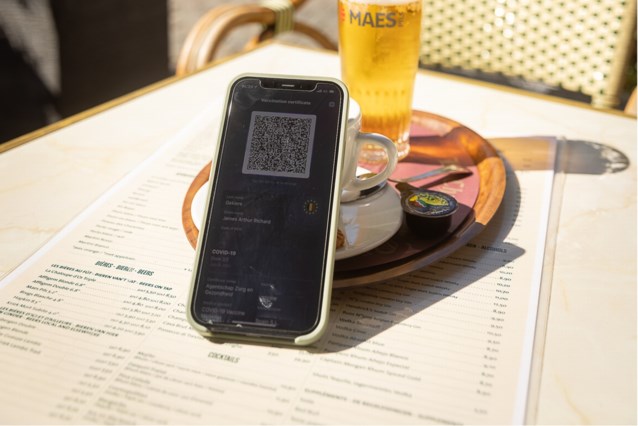After a two week delay, the Covid Safe Ticket (CST) will become mandatory in several situations in Brussels from today (Friday). Some mayors blame a lack of assistance from the Brussels Government for the delay.
As has previously been the case when implementing measures in Brussels, most of the organisation and preparation for the expansion of the CST fell to the 19 communes, Vincent De Wolf – mayor of Brussels municipality Etterbeek and president of the Brussels Mayor Conference – explained.
"It is always up to the municipalities to do everything, and do so in difficult circumstances, without getting help. That is problematic," he told The Brussels Times.
"Between the police and the communes, we can agree that without the efforts made on the municipal levels, controlling the pandemic in Brussels would have been impossible," he added.
De Wolf stated that, as was the case when Brussels' Minister-President Rudi Vervoort decided to re-open nightclubs in the region, any information or help provided is "too little, too late."
Related News
- Covid Safe Ticket to be expanded in Wallonia from 1 November
- Still no effect of Covid Safe Ticket on Brussels vaccination figures
"It is always, as we say in French, trop peu, trop tard. When Vervoort decided on 30 September at 11:00 PM to re-open clubs at midnight, that decision was made just one hour before they could open, which is problematic," he stressed.
However, according to Vervoort's spokesperson, all the mayors were informed about measures during the Regional Security Council. "Including about the Covid Safe Ticket during the meeting this week. All information was communicated and they could also ask their questions."
Showing a valid CST to prove that you have been fully vaccinated, recently tested negative or recovered from the virus in the past half-year will be mandatory in Brussels’ hospitality industry, sports centres and indoor events with more than 50 people from Friday.
Finding alternatives
Very few to no resources were provided to the communes when it comes to implementing this measure, says De Wolf. "For example, for residential care homes, we don't have enough staff members to expect them to stand outside and check anyone who comes in for a CST," he said.
The communes asked the Brussels health authorities (Cocom) for either financial help or additional personnel, requests that De Wolf says were turned down.
"In Etterbeek we solved this problem by signing contracts with students who can carry out checks, as in any case, this is less expensive than relying on external security companies," he said. A list will be drawn up of various people who are authorised to carry out CST checks.
Both Vervoort's spokesperson and De Wolf concur that several mayors wanted to roll out municipal guards to manage the checks, but this was also rejected.
"However, the Minister-President is going to contact Home Affairs Minister Annelies Verlinden to see if this can be adjusted," his spokesperson said.
In restaurants, bars and other businesses in the hospitality sector, the staff themselves will have to carry out CST checks. The police have also been asked to perform inspections to ensure this is being implemented, but De Wolf says that these will be sporadic. Rule-breakers risk fines of between €50 and €500; however, in the first days, warnings rather than fines will be handed out.
De Wolf said that a new meeting will take place within a month to evaluate the situation and, if necessary, make improvements.
"Until then, every mayor and every municipality is going to do their best to organise this, but it must be said, this will be done in difficult circumstances and with little help from the region itself," he concluded.

